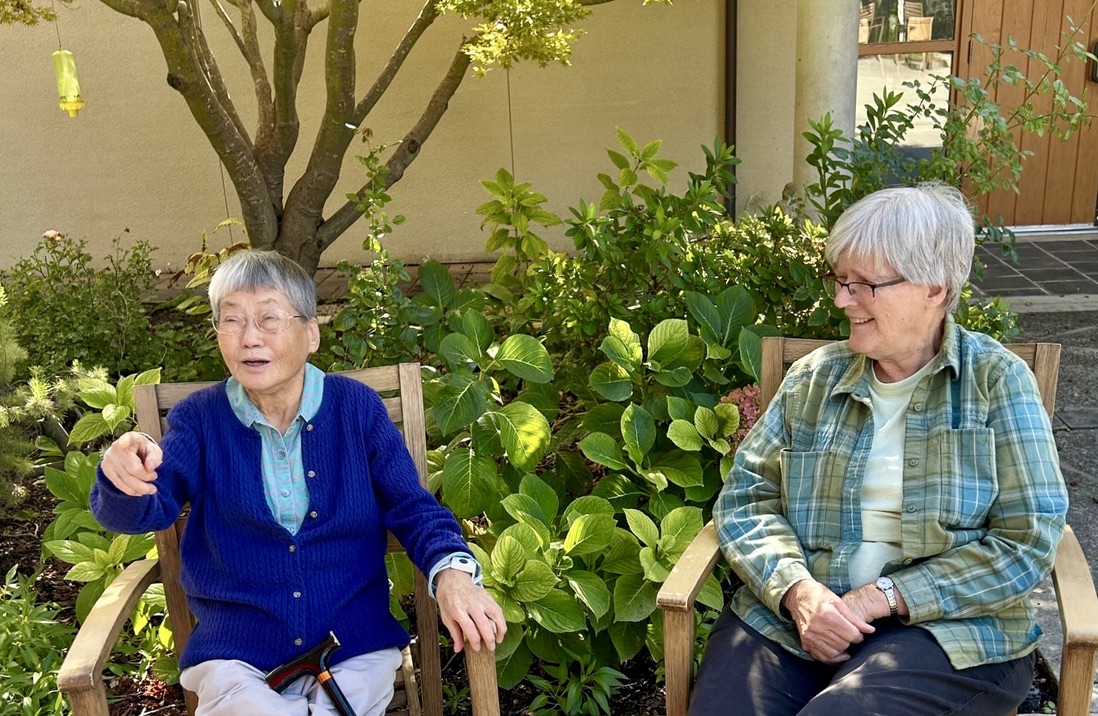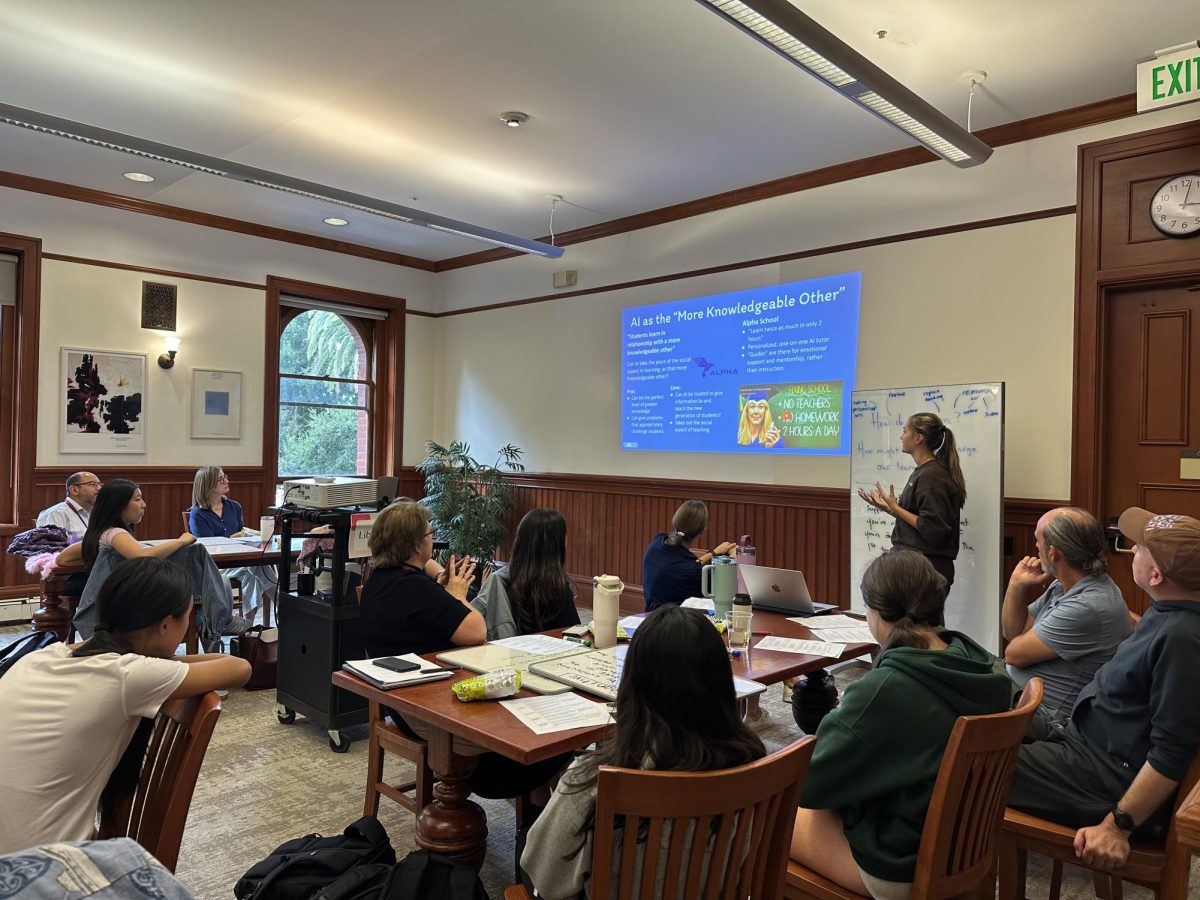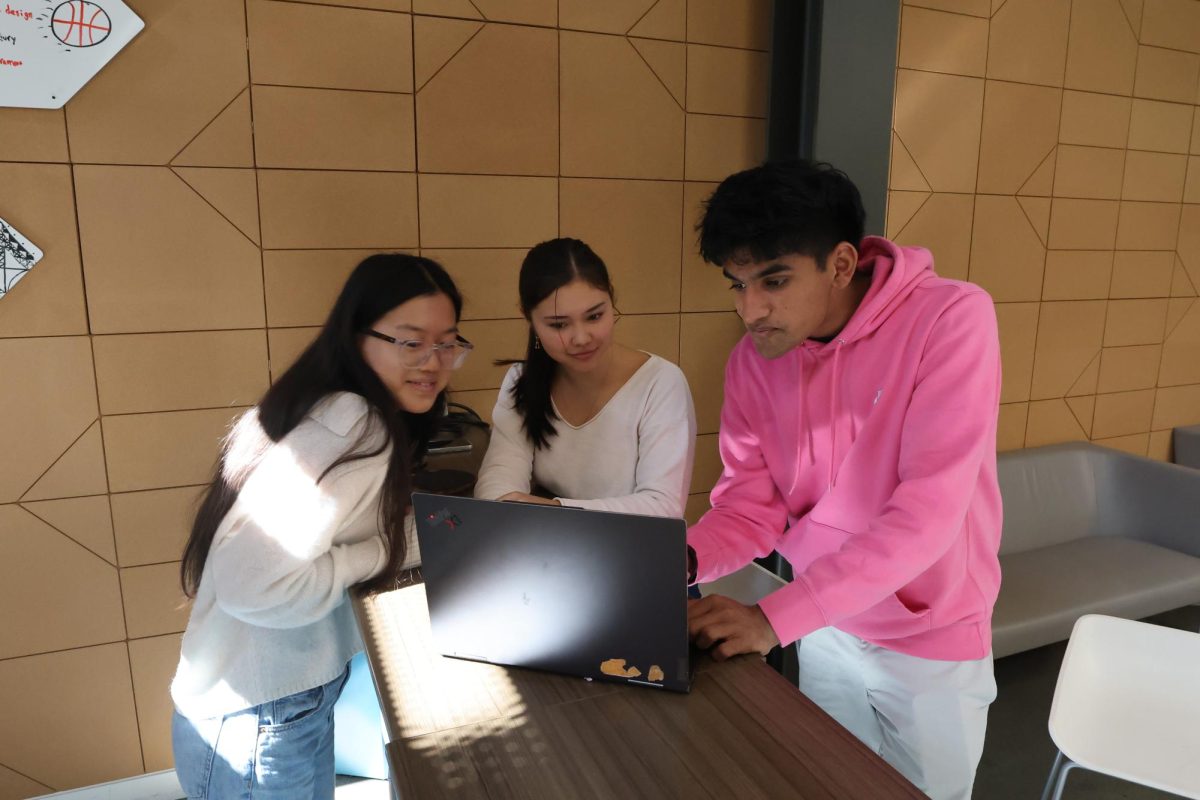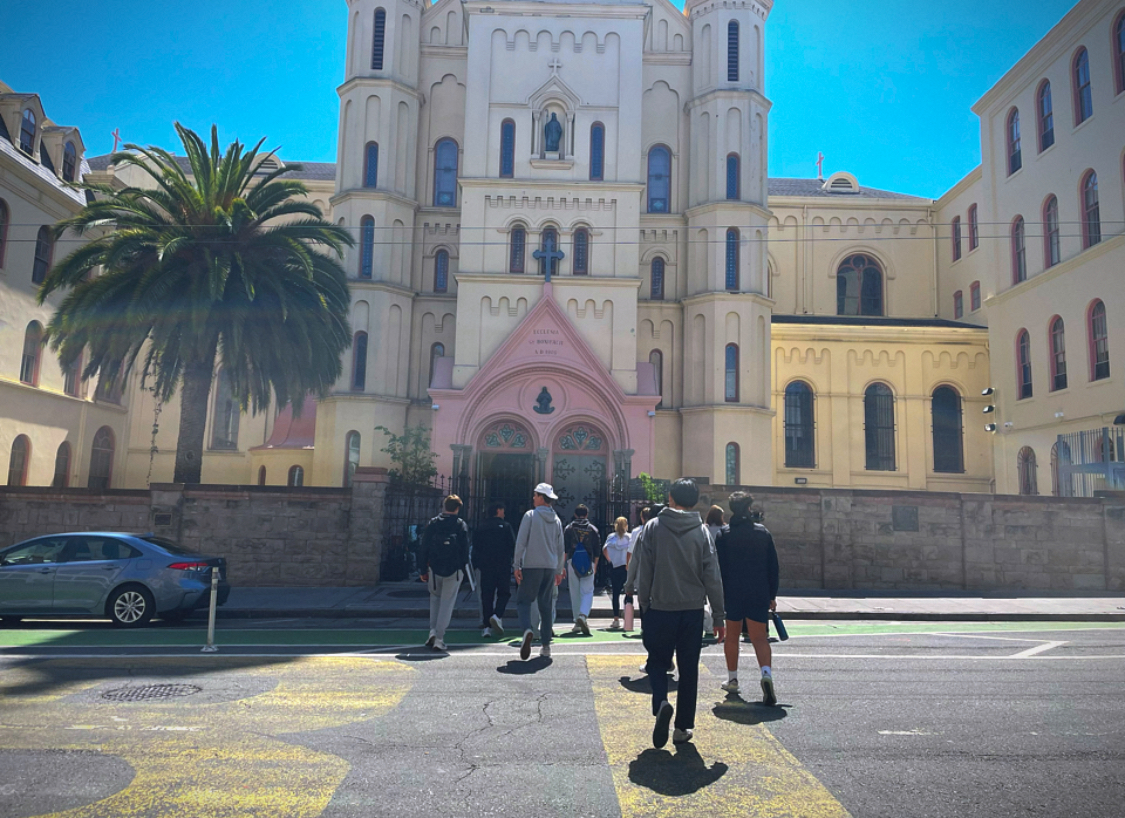Two RSCJ sisters, Yungja Park and Suzanne Lasseigne, have lived remarkable lives, stretching across countries and communities, both filled with decades of service and love. Now, they’re current residents at Oakwood, and they carry inspiring experiences that continue to shape their view of the world and transform those around them.
Sister Yungja grew up in Korea in a Catholic family. She remembers starting school at a young age: “I think I started four years old, went to kindergarten… and the nuns did the teaching… All I remember is eat the goodies and come home,” she laughed; the early years left a deep mark. Youngja remembers saying, “Oh, I’m going to be a nun just like my teachers… and it happened.”
However, her path wasn’t that simple. Not much later, the Korean War began and uprooted Youngja’s childhood. She says it turned “everything upside down… nobody [knew], you know?”
When she was around 20 years old, she rediscovered her love for religion once again. Now, at over 80 years old, she calls it “the best life there is. It’s a happy life… it’s good and happy.” While religious life “can be hard, it is easier with God than people.”
She also worked as a social worker in Detroit, a city she remembers fondly. “Detroit is my second hometown,” except for one grievance: “very long winters from November to March,” she said, laughing. “Michigan is beautiful, but the snow is terrible. Still, Detroit people are very kind. They also drive decent.” After decades in the Midwest, she is nonetheless glad to live in California where there are “Always [flowers].”
Her favorite scripture is from John 1: “God made the world because he loves the world,” she explained. “Love makes all the difference.”
Sister Suzanne grew up in Louisiana speaking a French dialect at home. Her childhood was tainted by segregation. “Signs everywhere said ‘no blacks here’ and ‘only whites here,’” she remembered. “I was reading a little local newspaper that came from the next town… and that’s when I learned about people being on death row, and they were all blacks, all these terrible things.” Eventually, Sister Suzanne decided that she “wanted to get away from all this,” and in time, made her way to the Sacred Heart Academy. Here she “learned about a whole new world.”
She recalls that at her new academy, “there were people there who accepted everyone, who loved everyone.” Also, “the nuns had a great sense of humor, and they helped [her] laugh at [herself].” After college, she taught French at a Sacred Heart School, hopping around from Texas to New Orleans, but found it unfulfilling. “You have to deal with grades…planning,” she chuckled. “So I went back to school and I got a degree in social work. That was much better for me.” She explains that she thoroughly enjoyed learning about the stories of other individuals, and the sense of gratification she felt from simply offering her help and support. She attended Tulane University!
Through her work, Sister Suzanne started to see how different people’s lives could be depending on where they were born, and began to notice that backgrounds often shape opportunities for an individual in ways that aren’t necessarily fair. “I began to have more compassion for people who don’t have as much,” she said. Working with people facing substantive and long-term challenges taught her important virtues like patience and empathy. For instance, some of the individuals she had met had grown up without access to education or support. It often took years for them to rebuild their confidence and stability in their lives. “I enjoy being a part of the development, seeing people grow into better [people],” Sister Suzanne said. “And that’s kind of what social work is about, trying to help people become themselves, their real selves that they want to be.”
Her work has taken her across the world! Experiences from Haiti, to the Democratic Republic of the Congo, and throughout Europe have greatly deepened her belief that “people are people, wherever you are.” On a deeper level, these experiences have shaped the way she views judgement and assumptions; she says that “I’ve learned with all my judment…people often get put into a box, by the way they look, blonde hair, dark hair.” She continues: “we often make assumptions about people by the way they look, the way they’re dressed, whatever. And I’ve learned that there’s always something hidden that we don’t know, that we can’t see. So it’s been very revealing to me, very educational for me and very humbling, really, because it could be me who didn’t have enough to eat.”
A verse she has often valued throughout the years is, “God waits to be gracious to us. God has patience with us, and is always waiting for us to turn back.”
At Oakwood today, one can find Sister Suzanne going on nature walks, attending sports games, campus events, and gardening. “My garden attracts humming birds and butterflies,” she said. Sister Suzanne and Sister Yunja both demonstrate the remarkable power of faith, and how it can shape an ordinary life into one dedicated to service and helping others.











